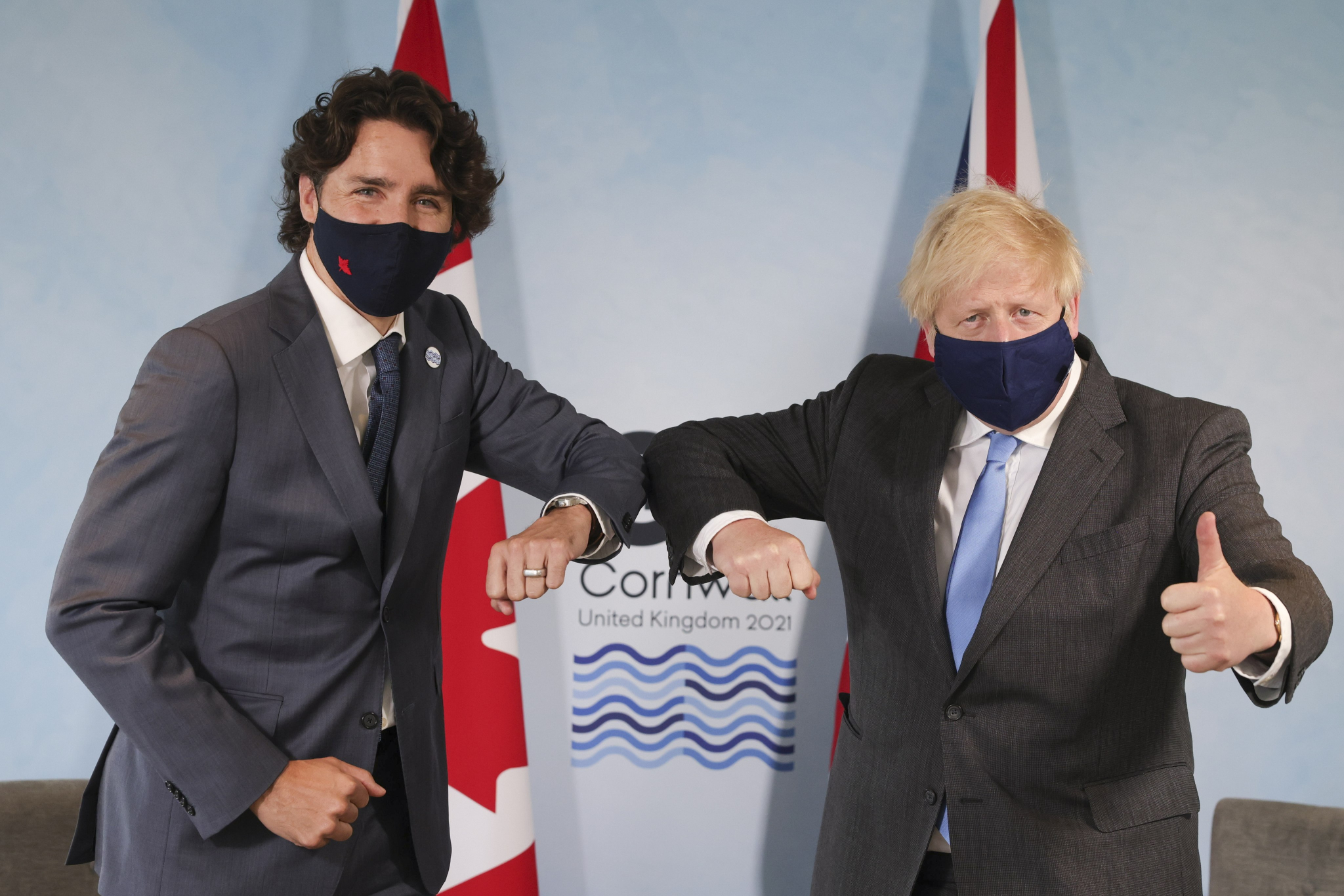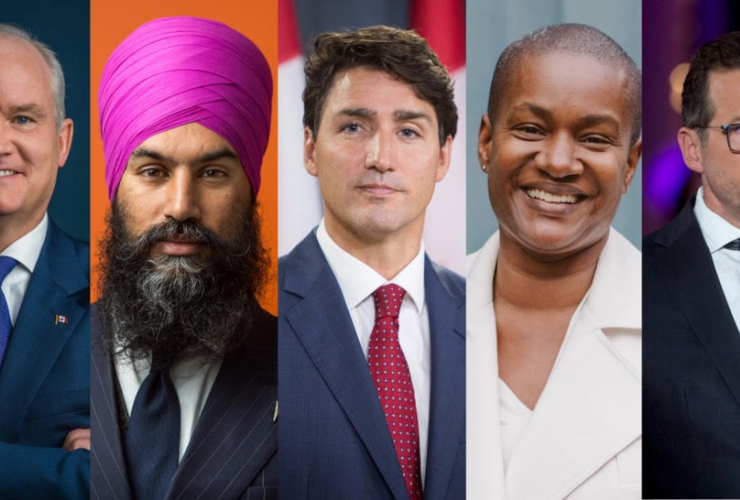Less than two years ago, Justin Trudeau was a severely battered prime minister. On Oct. 21, 2019, Trudeau’s Liberal Party was reduced to a minority government, winning only 157 seats — down from the 184 the party won in its historic 2015 majority victory. It was a near-death experience for a prime minister, who less than a year before, had been considered a shoo-in for a second majority mandate.
That year proved to be a disastrous one for the Trudeau government. The SNC-Lavalin affair — a controversy involving attempted political interference with the justice system by Trudeau and his senior advisers — triggered a sequence of damaging political events for the prime minister that dominated the news cycle in the lead-up to the 2019 election.
Trudeau’s once-sturdy political fortunes took another plunge when in the midst of the 2019 campaign, numerous old photos of the prime minister wearing dark makeup surfaced, precipitating bombshell media reports that made international news. The blackface revelations immediately destabilized the Liberal campaign, arming Trudeau’s opponents with a lethal weapon to discredit his commitment to racial justice and paint a picture of a prime minister unfit to govern.
It wasn’t so much that Trudeau was reduced to a minority government in 2019, it’s that he lost the popular vote to former Conservative leader Andrew Scheer — arguably the weakest official Opposition leader in two decades.
But before the dust had settled on the 2019 campaign, the COVID-19 pandemic shut down much of the world in March 2020. Overnight, Trudeau reacted nimbly to the sudden crisis that immediately brought much of the Canadian economy to a standstill. On March 18, just one week after the World Health Organization declared the world was in the throes of a global pandemic, the prime minister took decisive action to close the Canada-U.S. border to all non-essential travel. Days later, the Liberal government swiftly passed a massive $137-billion pandemic rescue package that immediately doled out billions to support individuals, families, and businesses adversely impacted by the pandemic.
It’s not an exaggeration to point out that the prime minister and his government worked night and day for weeks on end to adeptly create financial support programs from scratch, and ensure the money flowed into Canadians’ hands without delay. The speed and agility with which Trudeau’s government took decisive action to sustain millions of Canadians at the onset of the pandemic are unmatched in our nation’s history.
Since those distressing days in spring 2020, when too many Canadians lost their jobs and livelihoods overnight, Trudeau’s government rolled out an exhaustive list of financial support programs that benefited nearly nine million Canadians in 2020 alone. Crucial programs like the CERB/CRB and the numerous business support programs the federal government has administered have continually evolved or been extended as the pandemic’s fourth wave now takes its toll on Canada.
Add to that, the government’s vaccine procurement strategy, which has materialized into an immense success for Trudeau. Data released by Ottawa on Aug. 13 showed 82 per cent of eligible Canadians are now partially vaccinated, while 71 per cent have received both doses. These impressive figures have made Canada a world leader in vaccines administered, hampering the spread of the virus and ensuring the economy remains open.
In short, the pandemic has been a political game-changer for Trudeau, resurrecting his political fortunes at an opportune time as he seeks a third mandate.
Canadians do not expect perfection from their governments, but in times of crisis, they expect their leaders to take bold action to protect the country and its citizens. While the government’s handling of the pandemic has not been flawless, Trudeau has consistently risen to the occasion throughout the first prolonged crisis Canada has faced since the Second World War.
You don’t have to be a student of political history to recognize that with the notable exception of former British prime minister Winston Churchill, political leaders in the Western world who have governed effectively during times of national crisis have traditionally been rewarded by voters at the ballot box.
In his first term, prime minister Jean Chretien confronted dual fiscal and national unity crises. Having run on the “Red Book’s” centre-left platform, Chretien quickly pivoted his economic agenda, overseeing deep cuts to provincial transfer payments and federal social programs. By 1998, Chretien’s government had eliminated a $42-billion deficit and introduced the first balanced budget in 30 years. Chretien also faced a national unity crisis when Quebec nearly seceded from the federation in 1995, but in its aftermath, he was widely lauded for implementing the Clarity Act. As a result of deftly managing these crises, Chretien won successive majority mandates in 1997 and 2000.
U.S. president George W. Bush came to power in 2001 with virtually no foreign policy experience, let alone a discernible interest in global affairs. But the Sept. 11 terrorist attacks transformed Bush’s presidency overnight, forcing him to embrace foreign policy as a key feature of his presidency and political appeal. While Bush’s handling of the ill-fated Iraq war and its protracted aftermath permanently scarred his presidency, it was his convincing leadership post-Sept. 11 — and the broad coalition of allies he brought together in the initial Afghanistan war — that earned him political capital. In 2004, Bush used this political capital to handily defeat a strong opponent in John Kerry, securing a second term in office.
Finally, prime minister Stephen Harper won his first majority mandate in 2011 following his government’s management of the 2008-09 global financial crisis. Like Chretien and Bush before him, a sudden crisis placed Harper in uncomfortable political territory. As an intellectual, small-government conservative, Harper quickly recognized he would need to cast aside his ideology and commit to a massive economic stimulus program for the country. Harper’s pragmatic leadership enabled Canada to emerge rapidly from the Great Recession, gaining him considerable support across the political spectrum.
Throughout the pandemic, Trudeau has not only delivered competent government, but has also become a more seasoned political leader. Gone are the days of the “selfie prime minister” who critics blasted for being all style and no substance. For it was this prime minister who stood stoically in front of his Rideau Cottage residence delivering updates and answering media questions day after day, and month after month throughout the pandemic’s first wave. With German Chancellor Angela Merkel’s imminent retirement, Trudeau will become the longest-serving leader of the G7 this fall — an informal role accompanied by international gravitas.
The Liberal Party has two other factors working in its favour. First, five of six premiers who triggered elections during the pandemic were re-elected with mostly stronger mandates — an encouraging trend for incumbent governments. Second, the political fallout from the pandemic to date has been largely borne by three unpopular Conservative premiers: Jason Kenney, Brian Pallister, and Doug Ford.
Entering the campaign’s second week, Trudeau’s Liberals are well-positioned to form a third consecutive government due in large part to their sound pandemic management. But if they are to be rewarded with a majority government on Sept. 20, Trudeau must strengthen the Liberal Party’s offerings through articulating a bold, forward-looking ballot question. Running merely on his solid record these past 18 months will only get Trudeau so far; he must demonstrate to Canadians why he and his party should be entrusted with a majority mandate at this consequential moment.
Early campaign commitments to mandate vaccine passports across federally regulated sectors and inject billions into the long-term-care sector will be vital to Trudeau’s pact with voters. These promises and others related to affordability and the cost of living must be fleshed out further and underlined in the party’s communications.
On the day he triggered an early pandemic election, Trudeau argued with fervour that Canada is at an inflection point as it confronts its most critical moment since 1945. His assessment might well be correct, but the onus is now on him to demonstrate why that is and what his government will do to ensure continued prosperity for all Canadians. If he’s successful, voters will likely reward Trudeau with a majority mandate next month.
Andrew Perez is a Toronto-based public affairs professional whose work includes government relations. Over the past decade, he has worked in a variety of public- and private-sector environments advising senior leaders on communication strategies in their interactions with governments and the media. Perez has volunteered on several political campaigns over the years for the federal and Ontario Liberal parties and remains politically active.
You can follow him on Twitter @andrewaperez.






Comments